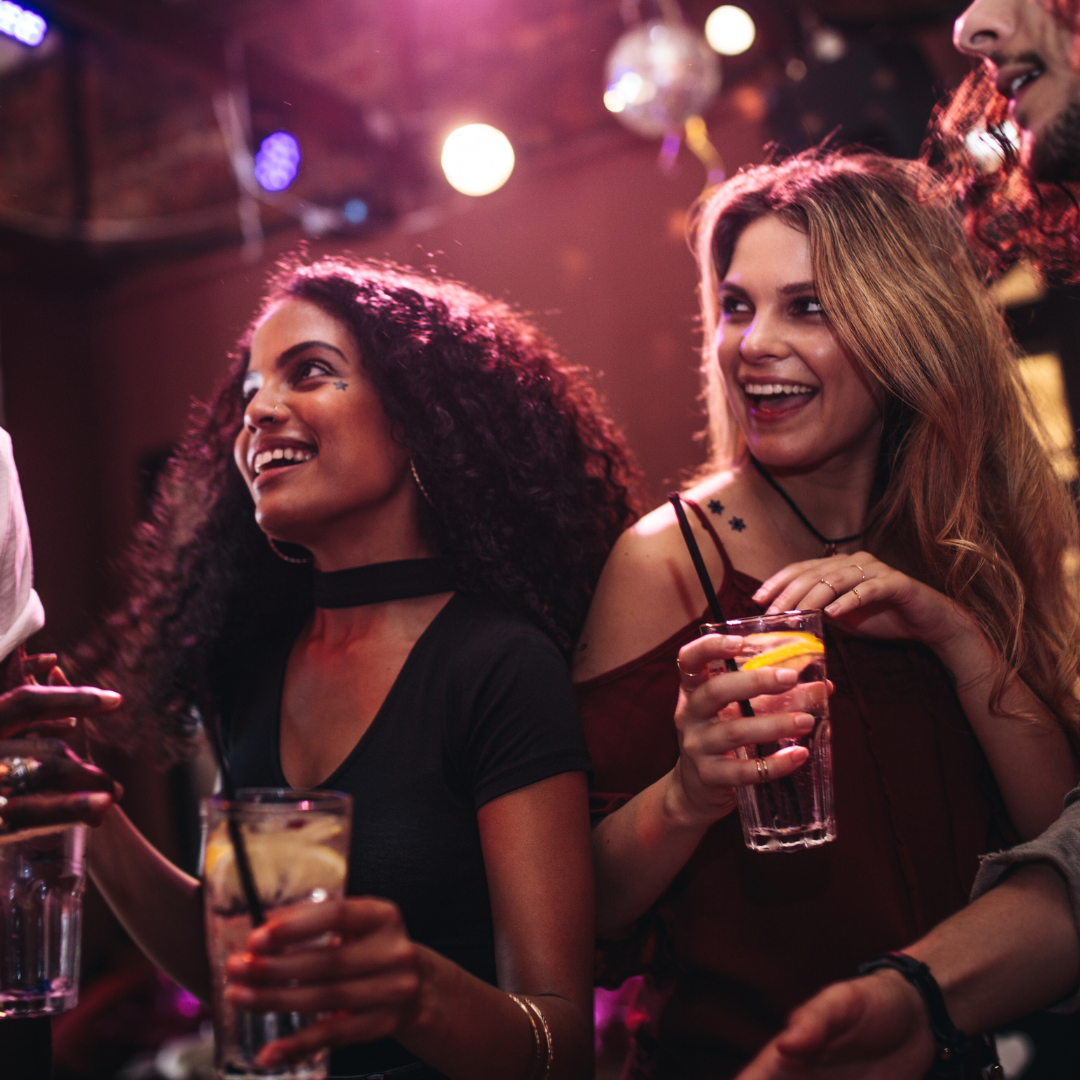Choose Your Drinks Wisely
Not all alcoholic beverages are created equal when it comes to IBS. Some drinks are more likely to trigger symptoms than others. Generally, it's best to avoid:
- Beer and ale: These are carbonated and often contain gluten, both of which can be problematic for IBS sufferers [2].
- Sugary cocktails: High sugar content can lead to fermentation in the gut, causing gas and bloating [3].
- Drinks with artificial sweeteners: These can be particularly troublesome for those with IBS [4].
Pace Yourself
Drinking slowly and alternating between alcoholic drinks and water can help reduce the overall impact on your digestive system. This approach not only helps manage IBS symptoms but also prevents dehydration, which can exacerbate digestive issues [5].
Eat Before and During Drinking
Never drink on an empty stomach. Having food in your system can slow down the absorption of alcohol and reduce its irritating effects on your gut. Consider bringing your own snacks if you're unsure about the food options available at the venue [6].
Beware of Drunken Munchies
As the night progresses and inhibitions lower, it's easy to fall into the trap of indulging in greasy, spicy, or sugary foods that you'd normally avoid. These late-night treats can wreak havoc on your digestive system, especially when combined with alcohol [7]. Plan ahead by eating a proper meal before going out and consider bringing IBS-friendly snacks with you. If you do find yourself hungry after drinking, opt for simpler, gentler options.
Stay Hydrated
Alcohol is a diuretic, meaning it can lead to dehydration. This can worsen IBS symptoms, particularly constipation. Make sure to drink plenty of water throughout the evening. A good rule of thumb is to have a glass of water for every alcoholic drink consumed [5].
Mind Your Portions
It's not just what you drink, but how much. Even IBS-friendly drinks can cause problems if consumed in large quantities. Set a limit for yourself before going out and stick to it. Remember, it's okay to refuse a drink or leave some unfinished [8].
Be Prepared
Always carry any medications or supplements you might need. This could include:
- Antispasmodics
- Antidiarrheal medication
Having these on hand can provide peace of mind and quick relief if symptoms do flare up.
Manage Stress
Social situations can be stressful, and stress is a known trigger for IBS symptoms. Practice relaxation techniques such as deep breathing or mindfulness to help keep stress levels in check. If you're feeling overwhelmed, it's okay to step outside for a few minutes of quiet time [9].
Know Your Triggers
IBS triggers can vary greatly from person to person. Keep a food and symptom diary to identify your specific triggers. This knowledge will help you make informed decisions about what to drink and eat when socialising.
Plan Your Recovery
The day after drinking can be challenging for those with IBS. Plan for a quiet day with plenty of rest, hydration, and gentle, easily digestible foods. Avoid caffeine and greasy foods, which can further irritate your digestive system.
Communicate with Friends
Don't be afraid to communicate your needs to friends and colleagues. True friends will understand and support your efforts to manage your health. You might even find that others in your social circle have similar concerns.
Consider Non-Alcoholic Options
With the growing popularity of non-alcoholic beverages, there are now many sophisticated options available. These can allow you to participate in social drinking without the negative effects of alcohol on your IBS [4].
Listen to Your Body
Above all, listen to your body. If you start to feel unwell, it's okay to call it a night. Your health should always be your top priority [2].
Conclusion
Living with IBS doesn't mean missing out on social occasions or the occasional drink. By making informed choices, preparing in advance, and listening to your body, you can enjoy social drinking without severe symptoms. Remember, moderation is key, and if alcohol consistently triggers your IBS, consider exploring alcohol-free alternatives.
References
- Vashkevich, K., Janiuk, K., & Maleki, N. (2023). A model for irritable bowel syndrome and anxiety comorbidities in relation to alcohol use disorders. Frontiers in Medicine, 10. https://doi.org/10.3389/fmed.2023.1161130
- Seltzer, G. (2020, July 8). How Does Alcohol Affect Irritable Bowel Syndrome. Virtua. https://www.virtua.org/articles/how-does-alcohol-affect-irritable-bowel-syndrome
- Healthy Life. (2022, August 10). IBS and alcohol - how drinking affects your gut. https://www.healthylife.com.au/learn/alcohol-ibs
- Suszynski, M. (2023, August 9). What to Drink and What to Avoid if You Have IBS. Everyday Health. https://www.everydayhealth.com/ibs/ibs-whats-in-your-cup.aspx
- Frothingham, S. (2023, March 28). IBS and Alcohol: Does Drinking Trigger Symptoms?. Healthline. https://www.healthline.com/health/ibs-and-alcohol
- Mickelson, A. (2021, June 4). 4 foods to eat before drinking alcohol to line your stomach and avoid a hangover. Business Insider. https://www.businessinsider.com/foods-to-line-your-stomach-before-drinking-alcohol-2021-6
- Krans, B. (2018, November 1). Got the 'Drunchies'? Why We Crave Fatty Foods After a Night of Drinking. Healthline. https://www.healthline.com/health-news/got-the-drunchies-why-you-feel-hungry-when-youre-drunk
- Harley, J. (2021, January 19). IBS and Alcohol: a Gut-Friendly Guide. Mindset Health. https://www.mindsethealth.com/matter/ibs-and-alcohol
- Nall, R. (2023, April 12). How Stress and Anxiety Can Aggravate IBS Symptoms. Healthline. https://www.healthline.com/health/irritable-bowel-syndrome/stress-and-anxiety



